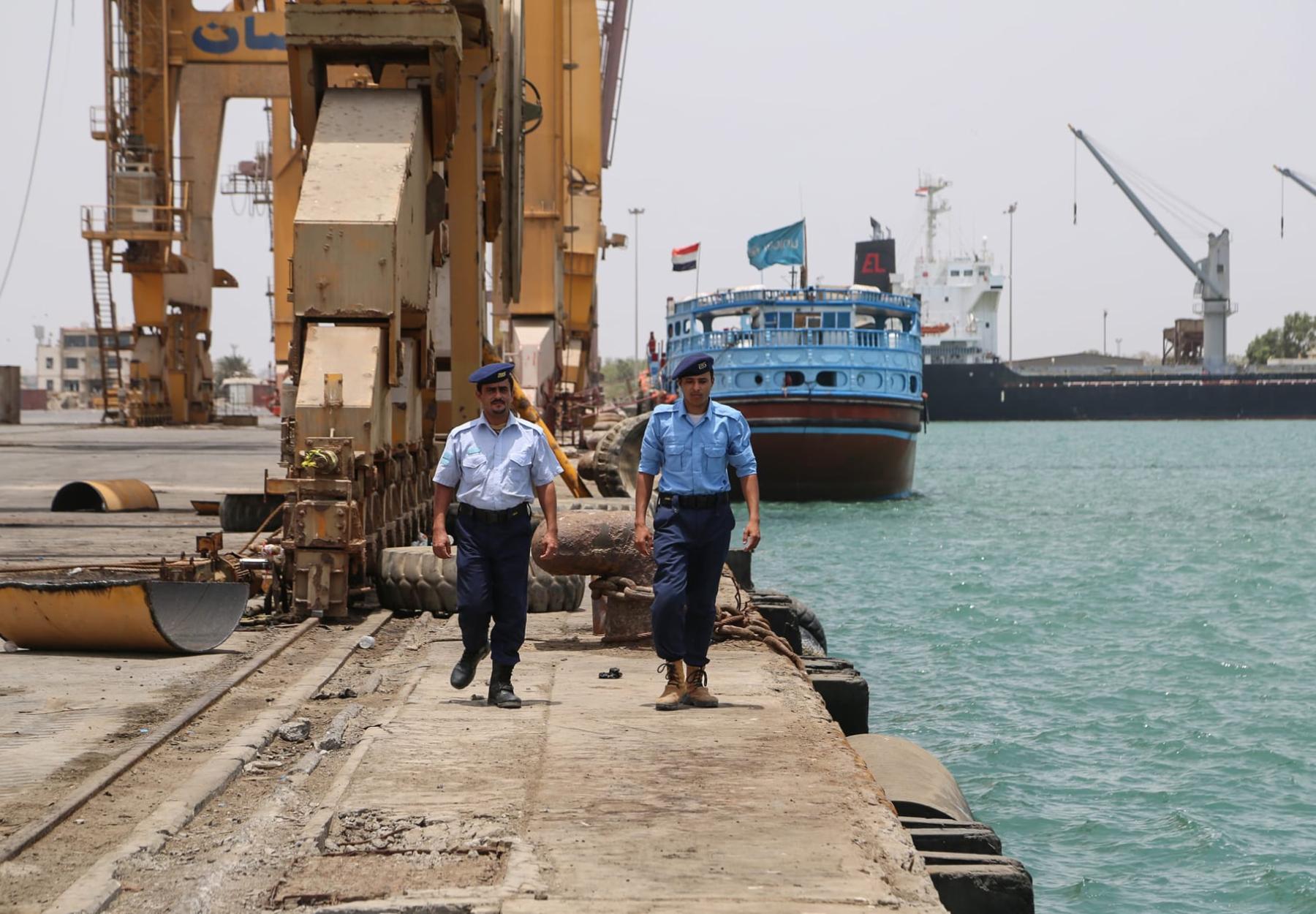
Eng. Hassan Al Jaaajaa, one of the founders of APN represented the organization at a meeting on 17 August, 2020 of major groups and stakeholder at the United Nations Environment Program in West Asia (UNEP). The meeting discussed the dangers to the oil tanker Safer located on the coast of Yemen, especially after the disaster that struck the port of Beirut in August 2020, and in light of the strife that Yemen is experiencing.
The meeting resulted in an urgent statement calling for the necessity to speed up solutions for the ship. APN called on all Yemeni, regional and international parties to work seriously to stop the war in Yemen and lift the siege on the Yemeni people. This was conveyed in a statement that was addressed to the UN Security Council
The Safer station is a giant oil tanker that has been docked 7 km off the coast of Yemen for 40 years. It is believed to contain at least 1.14 million barrels of oil. Since 2015, the station has not been inspected or maintained, and this may cause corrosion. If no maintenance is done, it can cause one of the largest environmental disasters in the region and the world.
The statement called on Yemeni parties, Arab ministers of environment, the UN Security Council and the international community to take immediate measures to avoid such a disaster that that would harm the livelihoods of about 4 million people
_____
Statement of the United Nations Environment West Asia Major Groups and Stakeholders on SAFER FSO YEMEN.
Dear H. E. Mr. António Guterres Secretary-General of the United Nations Dear H. E. Ms. Inger Andersen Executive Director of UN Environment Dear Your Excellency: Arab Ministers of Environment
Background of SAFER FSO:
The SAFER Floating Storage and Offloading (FSO) export terminal is a converted single hulled oil tanker Located at the Coast of Yemen. FSO SAFER terminal is a forty-year-old single hulled supertanker moored 7km off the coast of Yemen. Since 2015, it has not been inspected or maintained. It is thought to contain at least 1.14m barrels of oil and corrosion and a leak of FSO SAFFER with lack of maintenance could lead to one of the biggest environmental disasters in the region and the world. Based on Holm Akhdar website an environmental impact will be caused of an oil spill based on the following facts:
• 850,000 tons of fish stocks that exist in Yemen’s waters in the Red Sea, Bab El Mandab and the Gulf of Aden would be destroyed.
• 969 species of fish (coastal and deep-sea fish) in Yemeni waters would be killed by crude oil slicks.
• 115 of Yemen's islands in the Red Sea would lose their biodiversity and their natural habitats.
• 126,000 Yemeni fishermen would lose their only source of income.
• 67,800 Yemeni fishermen in Hodeida would lose their only source of income because of the disaster.
• 300 species of coral reefs would disappear from Yemeni waters as crude oil would prevent oxygen and sunlight from reaching them.
• 768 species of in Yemen’s territorial waters would suffer decay and destruction.
• 139 species of plankton living in Yemeni waters would be suffocated by crude oil slicks.
• 30 million people will be affected in the region.
• Will lead to the closure of Hodeidah Port for many month and exacerbating the humanitarian situation in Yemen.
Therefore, We the UN Environment Major Groups and Stakeholders of West Asia Region Call all Yemeni parties, United Nations, Arab Ministers of Environment, UN Security Council (UNSC) and International community to take the following action:
• We are in support of the declaration by the Secretary-General to urge the removal of any obstacles to the efforts needed to mitigate the dangers posed by the Safer tanker without delay.
• We ask for an immediate action on “This technical assessment will provide crucial scientific evidence for next steps to be taken in order to avert catastrophe.” Stéphane Dujarric, Spokesman for the Secretary- General, statement dated 14 August 2020.
• We Stress all Parties that the risk of FSO SAFER off the coast of Yemen could rupture due to neglect. In the worst-case scenario, 1.14 million barrels of oil would leak into the Red Sea (four times the size of the 1989 Exxon Valdez leak) .
• We urgently need all Yemeni parties to take action to avoid cause damaging the livelihoods of nearly 4 million people and severely disrupting Red Sea shipping lanes.
• We urgently demand the Yemeni Parties to assess the conditions of the ship and take the necessary measures to secure it and prevent the oil from leaking out.
• We call on the international community to take swift and urgent action to prevent this grave environmental catastrophe from occurring.
• We call on the Yemeni Parties to take action to solve this environmental disaster before it occurs because of its disastrous impact on the environmental, economic and humanitarian level.
• We urge the UN Security Council (UNSC) to take the necessary action to prevent an environmental disaster on the Yemeni coast.
• We call the United Nations Environment (UNEP) to establish risk reduction regional programs to Support the strengthening of national capabilities and capacities for management of chemicals; and Disclose prevention of illegal international traffic in toxic and dangerous products.
• We demand all Yemeni, regional and international parties to work hard to stop the war in Yemen and lift the siege on the Yemeni people.